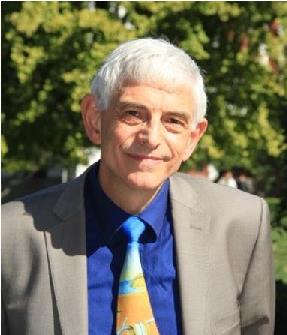Academic Report : Modelling, Verification, Control and Co-Design of a Wave Energy Converter
Speaker:Prof. Ron J. Patton
Time:2019.7.1 10:00-12:00
Location:Conference Room, 4th Floor, Hydraulic Old Building, Yuquan Campus

Abstract:
To achieve efficient power conversion, reliability and survivability in a Wave Energy Conversion (WEC) system, it is necessary to carefully understand the device hydrodynamics, combined wave force estimation and control, to tune the WEC performance into resonance. An investigation into a designed 1/50 scale vertical heaving Point Absorber Wave Energy Converter (PAWEC) implemented in a wave tank at the University of Hull has provided a research focus on aspects of: (i) nonlinear PAWEC dynamics; (ii) casualization and estimation of wave excitation force; (iii) scaled wave tank testing; (iv) PAWEC power maximisation control; (v) hydrodynamic modeling studies. The work involves the valuation of various estimation and adaptive control strategies.
The presentation will outline the strategy of numerical modeling of the PAWEC dynamics, wave tank numerical and experimental verification outline along with a comparison of strategies of (i) reactive control; (ii) latching control; (iii) 3-level tracking control along with redundant approaches for estimating the wave excitation force. The concept of redundancy in measurement/estimation will be described leading to suggestions for good fault tolerant control design.
Co-design between PAWEC geometry and external Power Take-Off (PTO) damping has been investigated via a CFD wave tank study showing how a comparison between three buoy geometries leads to a suitably streamlined device with improved hydrodynamic response and power absorption efficiency and low PTO damping. However, for optimum power conversion the estimation/control must be designed taking the hydrodynamic behaviour into account through joint optimization and co-design.
Brief Bio:
Ron J. Patton graduated at Sheffield University with BEng, Meng, PhD degrees in Electrical & Electronic Engineering and Control Systems. He holds the Chair in Control & Intelligent Systems Engineering at Hull University and has made a substantial contribution during 35 years to the field of modeling and robust methods for FDI/FDD (fault detection and isolation/fault detection and diagnosis) and Fault-Tolerant Control (FTC) in dynamic systems. He has Hirsch Index h_58 and is author of 438 papers, including 152 journal papers and 5 books. Ron serves on the Editorial Board of the International Journal of Applied Mathematics and Computer Science and is Subject Editor in System Supervision: Fault-tolerant Control & Diagnosis for the Wiley Journal of Adaptive Control & Signal Processing. He has served on editorial boards of several other Journals in control engineering. Ron chaired the International Programme Committees for IFAC Safeprocess’97, UKACC Control’98 and Med’08. He chaired the IFAC Technical Committee on Safety & Supervision of Technical Processes [1996-2002] and served as vice-chair of the IFAC Policy Committee [2008-2011]. For the EC he was rapporteur in 1995 for the committee reporting on the need for European research on Control in Embedded Systems. Ron coordinated the EU research projects IQ2FD [1997-2000] and DAMADICS -2000-2004] and contributed to FP6 NeCST [2004-2007] and FP7 ADDSAFE [2010-2013]. His work has been supported in the UK by 13 research grants. Current research interests are: Robust multiple-model and de-centralized strategies for FDI/FDD & FTC and Renewable Energy including load mitigation control for offshore wind turbines and wave to wire control of wave energy conversion. Ron is Life Fellow of IEEE, Senior Member of AIAA and Fellow of the Institute of Measurement and Control.

